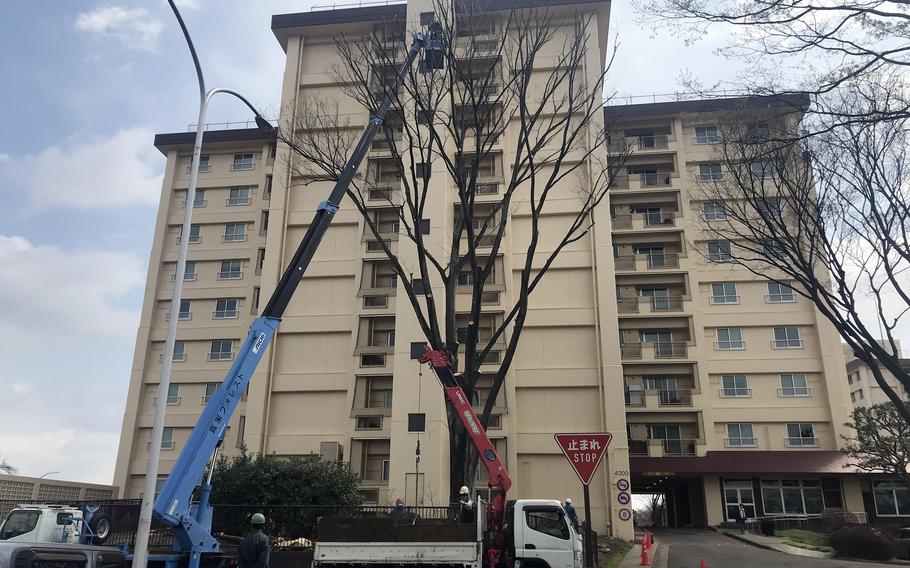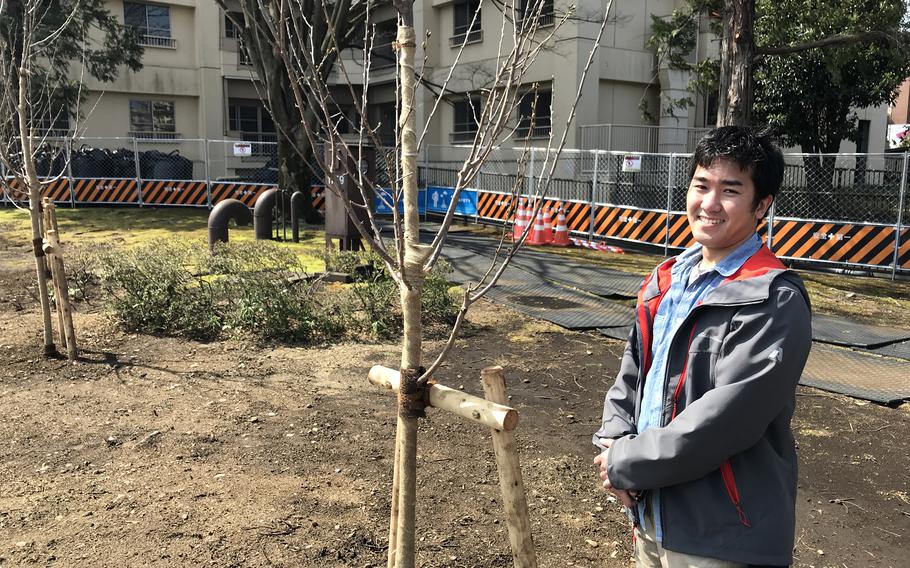
Workers trim a tree on the east side of Yokota Air Base in western Tokyo, April 2, 2024. (Seth Robson/Stars and Stripes)
YOKOTA AIR BASE, Japan — The U.S. Air Force is at war with an army of beetles eating their way through thousands of trees on its facilities in western Tokyo.
The trees are victims of a fungus transmitted by ambrosia beetles that have marched into the metropolis from the south in recent years, said Tamon Fukazawa, program manager for natural and cultural resources at Yokota, an airlift hub and the headquarters of U.S. Forces Japan.
“The beetles themselves are tiny,” he said Tuesday at his Yokota office, adding that workers spot infected trees by the telltale dust burrowed out by the insects.
The fungus, Fukazawa said, weakens wood, allowing beetle larvae to infiltrate the trees. The diseased trees don’t succumb immediately but are at risk of toppling over.

Tamon Fukazawa, program manager for natural and cultural resources at Yokota Air Base, Japan, checks out replacements for trees recently cut down due to an infection caused by migrating beetles, April 3, 2024. (Seth Robson/Stars and Stripes)
Contractors recently removed 80 trees, mostly oaks that the beetles prefer, at Yokota and at the nearby Tama Hills Recreation Area, popular for its 18-hole golf course. The tallest tree removed was 66 feet high, Fukazawa said.
So far, the beetles have spared the hundreds of ornamental cherry trees on both installations, he said.
Those trees began blooming this week and are expected to turn Yokota’s East Side into a pink-and-white wonderland in time for the base’s annual sakura festival this weekend.
However, the tree removal at Yokota has prompted people to lament their passing with dozens of posts about the issue on social media.
Workers aren’t cutting down all the dead or dying trees. Rather, they’re removing trees that are a safety hazard, Fukazawa said. Another 20 unsafe trees have been earmarked for removal.
Replacement trees are being planted, he said.
The Air Force has been aware of the beetle migration since 2020 but is in the early stages of dealing with their impact, Fukazawa said.
The beetles aren’t just making themselves at home on U.S. bases. Japan’s Asahi newspaper reported Feb. 1 that the voracious insects had killed 500 trees in Tokyo parks since April 2023, with 1,700 more infected.